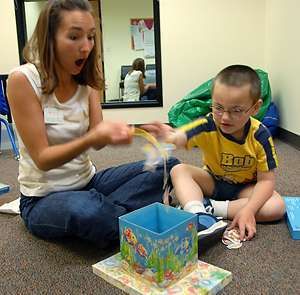When a family member is diagnosed with autism, there is a vast amount of information teaching parents how to cope with an autistic child, and there is also information for parents about dealing with an autistic child's different behaviors. However, there are fewer learning tools for those who have an autistic sibling, even though this is a very stressful situation for brothers and sisters of an autistic child.

The following tips can help children cope with an autistic sibling. Sometimes parents are so involved in preparing themselves and their autistic child for the transition ahead that they forget that their other children must also deal with the new situation. Often, siblings of an autistic child may feel the new situation acutely. They may feel neglected by parents or jealous of the autistic child who is now receiving more attention. Also, they may find their peers constantly teasing them about having an autistic sibling, which can lead to more stress. This may lead to behavioral issues, with the sibling acting out and becoming a "problem child" to receive attention. In some cases, the sibling may even try to hurt the autistic brother or sister in an attempt to remove him from the family environment. However, this is not always the case.
Sometimes, having an autistic sibling forces one to "grow up" and become responsible. There can be a strong emotional attachment to the autistic sibling and a keen desire to keep him or her safe in all situations. Furthermore, living with an autistic sibling can teach one to be more open about another person's differences. In this way, having an autistic sibling is a life-enriching experience that pushes individuals to be emotionally and mentally stronger and to be more tolerant towards others in life.
One tip for siblings to cope with their autistic brother or sister is to find a support group. There should be resources available at the local chapter of the Autism Society of America. This is especially important in helping siblings feel that they are not alone and isolated in this unfolding situation-others are dealing with the same sorts of problems. Also, try to increase family interaction. Schedule a regular family day or family night each week, where all children can spend time with parents or other family members and share their day or week experiences and any problems. The best thing to remember is to be open about how you are feeling.
If children feel that their parents are neglecting some aspect of their life, simply asking them for a moment of their time is often the best solution. It is important for parents to be understanding towards their children's needs for attention, whether they are autistic or not. Communication is the key to helping the entire family run smoothly.
